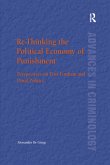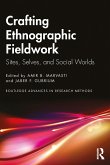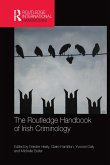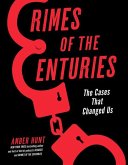Lonnie H. Athens' path-breaking work examines a problem that has baffled experts and the general public alike: How does a person become a predatory violent criminal?
In the original edition, the process that Athens labeled "violentization" encompassed four stages: brutalization, defiance, dominative engagements, and virulency. In this edition, Athens identifies a new final stage, violent predation, as the culmination of the violent criminal's development. He uses vivid first-person accounts gleaned from in-depth interviews and participant observation of nascent and hardened violent criminals to back up his theory.
In this vastly expanded edition, Athens examines how his thinking and ideas have evolved over the past thirty years and renames and clarifies two stages of development. Athens also addresses, for the first time, criticisms of his original theory. Milestones of this important work are discussed, as well as the paradoxes surrounding its present-day status in the field of criminology. Athens proposes a revised theoretical model that will be useful for classroom use, as well as for interested general readers and professionals.
In the original edition, the process that Athens labeled "violentization" encompassed four stages: brutalization, defiance, dominative engagements, and virulency. In this edition, Athens identifies a new final stage, violent predation, as the culmination of the violent criminal's development. He uses vivid first-person accounts gleaned from in-depth interviews and participant observation of nascent and hardened violent criminals to back up his theory.
In this vastly expanded edition, Athens examines how his thinking and ideas have evolved over the past thirty years and renames and clarifies two stages of development. Athens also addresses, for the first time, criticisms of his original theory. Milestones of this important work are discussed, as well as the paradoxes surrounding its present-day status in the field of criminology. Athens proposes a revised theoretical model that will be useful for classroom use, as well as for interested general readers and professionals.
"The most far-reaching, provocative, and profound analysis of violent conduct to be found in the criminological literature."
-Norman K. Denzin, author of The Research Act
"Represents a profoundly creative and original theoretical contribution, on a par with any other criminological development this century. It is more empirically, methodologically, and theoretically sophisticated than most of the erstwhile 'famous' researches of the 'big names' in the criminological field."
-John M. Johnson, Symbolic Interaction
-Norman K. Denzin, author of The Research Act
"Represents a profoundly creative and original theoretical contribution, on a par with any other criminological development this century. It is more empirically, methodologically, and theoretically sophisticated than most of the erstwhile 'famous' researches of the 'big names' in the criminological field."
-John M. Johnson, Symbolic Interaction








